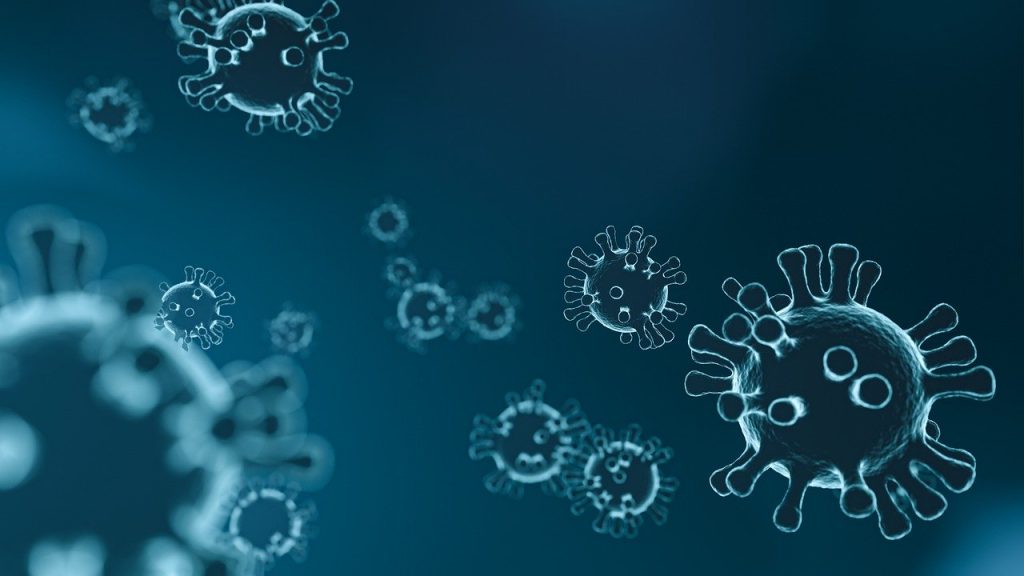
Across the world, COVID-19 has changed lives. Whether it’s via social distancing or other more severe forms of quarantine, economic disruptions, or the various declarations of emergency from nations spanning the globe, daily routines have been interrupted. Many of us are now working from home, perhaps with children, both young and those we may have sent off to college, all back under one roof as we navigate online meetings, phone calls, and assorted forms of virtual reference assistance with our patrons.
As librarians with a focus on foreign and international law, we may find ourselves either answering patron questions about the role of international law in public health crises, or asking our own questions as to how this pandemic will affect our ability to do our jobs and interact with one another. With that in mind, this post will discuss, among other things, the groundwork that has been laid by the international community regarding global health pandemics.
COVID-19 is not the first global pandemic, though to many of us it feels like a first. For as long as humans have been in existence, infectious disease has been our greatest killer.[1] Malaria, a disease we have made some strides in overcoming, still killed 435,000 people in 2017.[2] A lot has been said regarding the similarities between COVID-19 and the Spanish Flu[3] but human history is marked with plagues and devastating statistics of lives lost from disease (it’s estimated that anywhere from 300-500 million people died from smallpox infections in the 20th century alone[4]).
Starting in 1851 and ending in 1938, a series of fourteen International Sanitary Conferences were held to standardize international response and quarantine regulations for diseases like cholera, plague, and yellow fever[5]. These conferences paved the way for the UN to create the World Health Organization (WHO), one of its specialized agencies, in 1948.[6]
WHO has been in the news quite a bit recently, with the most notable headline being that President Trump has made the rash decision to halt U.S. funding for the organization.[7] Let’s take a look at some highlights of what the organization has accomplished since its inception. In 1952, the WHO created a Global Influenza Surveillance and Response System (GISRS) to track evolving influenza strains.[8] In 1969, countries adopted the International Health Regulations (IHR) requiring that WHO be notified whenever cases of cholera, plague, yellow fever, smallpox, relapsing fever, and typhus occurred within their territory. WHO published an influenza pandemic planning framework in 1999 to improve on research into flu viruses and assist in emergency preparedness.[9] In 2003, the Global Outbreak Alert and Response Network provided the tip that led to WHO scientists identifying the SARS virus and managing to contain it within about 4 months.[10] In 2005, WHO updated the International Health Regulations (IHR) focused on global response capacity to pandemic diseases. Whereas international agreements of this nature had previously limited what types of events were to be shared, the revised IHR urged states to report any event that had a serious public health impact, was unusual or unexpected, might be internationally virulent, and was likely to trigger a significant risk of international travel or trade restrictions.[11] In 2011, WHO produced a Pandemic Influenza Preparedness (PIP) Framework.[12] In 2013, the WHO released revised guidelines for Pandemic Influenza Risk Management. The WHO has managed to implement these measures, and struggled to achieve success in overcoming recent outbreaks, while operating with a budget that is commensurate to that of a large urban hospital in the United States.[13] Given the WHO’s funding issues, and its recent stumbles in handling the Ebola breakout among others, President Trump is not the first person to be critical of the WHO but Trump’s heavy-handed retraction of funds has even critics of the WHO concerned.[14]
While the WHO has been praised for its quickness in handling some of the more technical aspects of fighting a global pandemic[15], countries are taking their own approaches to the virus. In the case of China, early lockdown and forced quarantine measures seem to have been effective but such measures are not as easily implemented elsewhere.[16] In South Korea, the focus has been on tracing the virus’s spread through free, massive testing and then treating those who test positive.[17] Social distancing has been encouraged through school closures, teleworking, and bans on large gatherings but forced quarantine has not been implemented.[18] Italy and Spain, who delayed their containment strategies, have both favored less restrictive lockdown methods, though restrictions have increased as the situations in both countries have become more dire.[19] In the United Kingdom, a strategy of containment, delay, research, and mitigation have produced mixed results. Schools in the U.K. stayed open longer than countries on the continent and initial restrictive measures were aimed more at the most vulnerable like the elderly and those with comorbidities. While delaying actions may have allowed the U.K. to stave off some of the social and economic costs of the virus, it does not appear to have greatly lessened the spread of COVID-19.[20] Finally, the approach favored by several African countries has been stronger border protection via flight restrictions, visa denials, and two-week quarantines for foreigners entering the country. While the numbers of infected persons remain lower on the African continent, it’s unclear if this can be attributed to the tightening of borders.[21]
As countries either reach their peak or begin to see infections level off and decrease, attention turns to easing restrictions and returning to work. While COVID-19’s impact on world health cannot be ignored, it has also significantly impacted the global economy.[22] Those who are lucky enough to retain their jobs, even if doing so has involved massive amounts of emails and learning to navigate the intricacies of services like Zoom, are still feeling the impact of supply chain failures every time they look for toilet paper at their local supermarket.[23] But it’s not just cleaning products and paper goods that are hard to come by. Certain parts of the food industry have been hit hard and we’re likely to see the impact from COVID-19’s economic disruptions for months to come.[24] The IMF has warned that the global economy is expected to retract by 3% this year due to quarantines and lockdowns.[25]
Many of us have already experienced that particular feeling of disappointment that comes with finding out something we were so looking forward to – be it a concert or show or annual course of our favorite professional organization – has been cancelled or postponed. Travelling has now become limited to the rooms within our houses or apartments, with, perhaps, a weekly exotic visit to the surreally sparse aisles of our local grocery stores. Certainly, we all look forward to the time we can see one another in person once more. Is there a silver lining? Perhaps some of us have a newfound appreciation for our pets. Others may find that without a commute, we’re sleeping more than we ever have before. Maybe we’ll all come away from this with smaller “to be read” piles of books.
In the meantime, there are things we can do to help. As information professionals, we can and should be on the frontlines of the fight against misinformation. I will readily admit that I was one of the many people who initially fell for reports that ibuprofen could aggravate COVID-19 symptoms.[26] Now, more than ever, we need to help our patrons, friends, and family distinguish between facts and fictions. And finally, if you’re doing all you can to help ensure accurate information falls into the hands of everyone you come by, and you’re still restless to do more, there are organizations that can use donations to continue their fight against COVID-19.[27] Stay home, stay safe, and we will meet again to share our love of law librarianship and legal scholarship.
Heather Casey
Georgetown University Law Center
International & Foreign Law Reference Librarian & Adjunct Professor of Law
Washington, D.C.
This Blog contains entries by members of the International Association of Law Libraries on issues germane to the Association’s areas of focus. Views expressed in an individual entry only represent the views of the author.
[1] https://www.bbc.com/future/article/20200325-covid-19-the-history-of-pandemics.
[2] https://www.who.int/gho/malaria/epidemic/deaths/en/.
[3] https://www.bbc.com/future/article/20200302-coronavirus-what-can-we-learn-from-the-spanish-flu.
[4] David A. Koplow, Smallpox: the fight to eradicate a global scourge (Berkeley: University of California Press, 2003).
[5]https://apps.who.int/iris/bitstream/handle/10665/62873/14549_eng.pdf;jsessionid=3A2CDB32A63A175A8A04F4467AAF29D9?sequence=1.
[6] https://www.who.int/about/who-we-are.
[7] https://www.nytimes.com/2020/04/14/us/politics/coronavirus-trump-who-funding.html. The biennial budget for the WHO is about $6 billion which is drawn from member countries. In 2019, the U.S. offered approximately $553 million in funds (see http://open.who.int/2018-19/budget-and-financing/gpw-overview and https://www.who.int/about/finances-accountability/funding/AC_Status_Report_2020.pdf?ua=1).
[8] https://www.who.int/influenza/gip-anniversary/en/.
[9] World Health Organization. WHO/CDS/CSR/EDC/99.1 Influenza Pandemic Plan. The Role of WHO and Guidelines for National and Regional Planning (Apr. 1999).
[10] https://www.who.int/ihr/alert_and_response/outbreak-network/en/.
[11] International Health Regulations (2005), 2nd edition. Geneva: World Health Organization, art. 6, available at https://apps.who.int/iris/bitstream/handle/10665/43883/9789241580410_eng.pdf?sequence=1.
[12]https://www.who.int/news-room/q-a-detail/pandemic-influenza-preparedness-framework. For more information on these accomplishments, please read this excellent ASIL Insight by Anastasia Telesetsky: https://www.asil.org/insights/volume/24/issue/3/international-governance-global-health-pandemics#_ednref10.
[13] Larry Gostin, The Future of the World Health Organization: Lessons Learned from Ebola, Milbank Q. 2015 Sep; 93(3): 475-79, available at https://www.ncbi.nlm.nih.gov/pmc/articles/PMC4567849/.
[14] https://www.washingtonpost.com/world/trumps-critique-of-who-may-be-a-diversion-but-it-resonates-beyond-the-white-house/2020/04/15/c3320360-7b30-11ea-a311-adb1344719a9_story.html.
[15] https://news.un.org/en/story/2020/04/1061412.
[16] https://www.newyorker.com/magazine/2020/03/30/life-on-lockdown-in-china and https://time.com/5796425/china-coronavirus-lockdown/.
[17] https://www.foreignaffairs.com/articles/united-states/2020-04-10/south-korea-offers-lesson-best-practices.
[18] Id.
[19] https://www.npr.org/sections/coronavirus-live-updates/2020/04/03/826699690/spain-briefly-passes-italy-in-covid-19-cases-but-officials-see-growth-rate-slowi and https://www.ncbi.nlm.nih.gov/pmc/articles/PMC7125421/.
[20] https://www.npr.org/sections/coronavirus-live-updates/2020/04/02/826157269/u-k-health-workers-decry-low-rate-of-coronavirus-tests-for-hospital-staff and https://www.theguardian.com/world/2020/apr/15/uk-government-has-no-exit-plan-for-covid-19-lockdown-say-sources.
[21] https://www.npr.org/sections/goatsandsoda/2020/03/21/818894991/african-countries-respond-quickly-to-spread-of-covid-19.
[22] https://www.nytimes.com/2020/04/10/business/economy/global-trade-shortages-coronavirus.html?smid=fb-share&fbclid=IwAR3eS4nPbZy-bMB17IHVaJR0Lpm4Q1ZYtN11uwELLnSmYDeqzpECRiipiIU.
[23] https://marker.medium.com/what-everyones-getting-wrong-about-the-toilet-paper-shortage-c812e1358fe0.
[24] https://www.bbc.com/news/world-52267943.
[25] https://www.nytimes.com/2020/04/14/us/politics/coronavirus-economy-recession-depression.html.
[26] https://www.wired.com/story/the-ibuprofen-debate-reveals-the-danger-of-covid-19-rumors/.
[27] You could donate to the WHO, to UNICEF, to the ICRC, or to local charities within your jurisdiction. Places that are especially needing of support right now include food banks and women’s shelters or organizations that deal with domestic violence.
